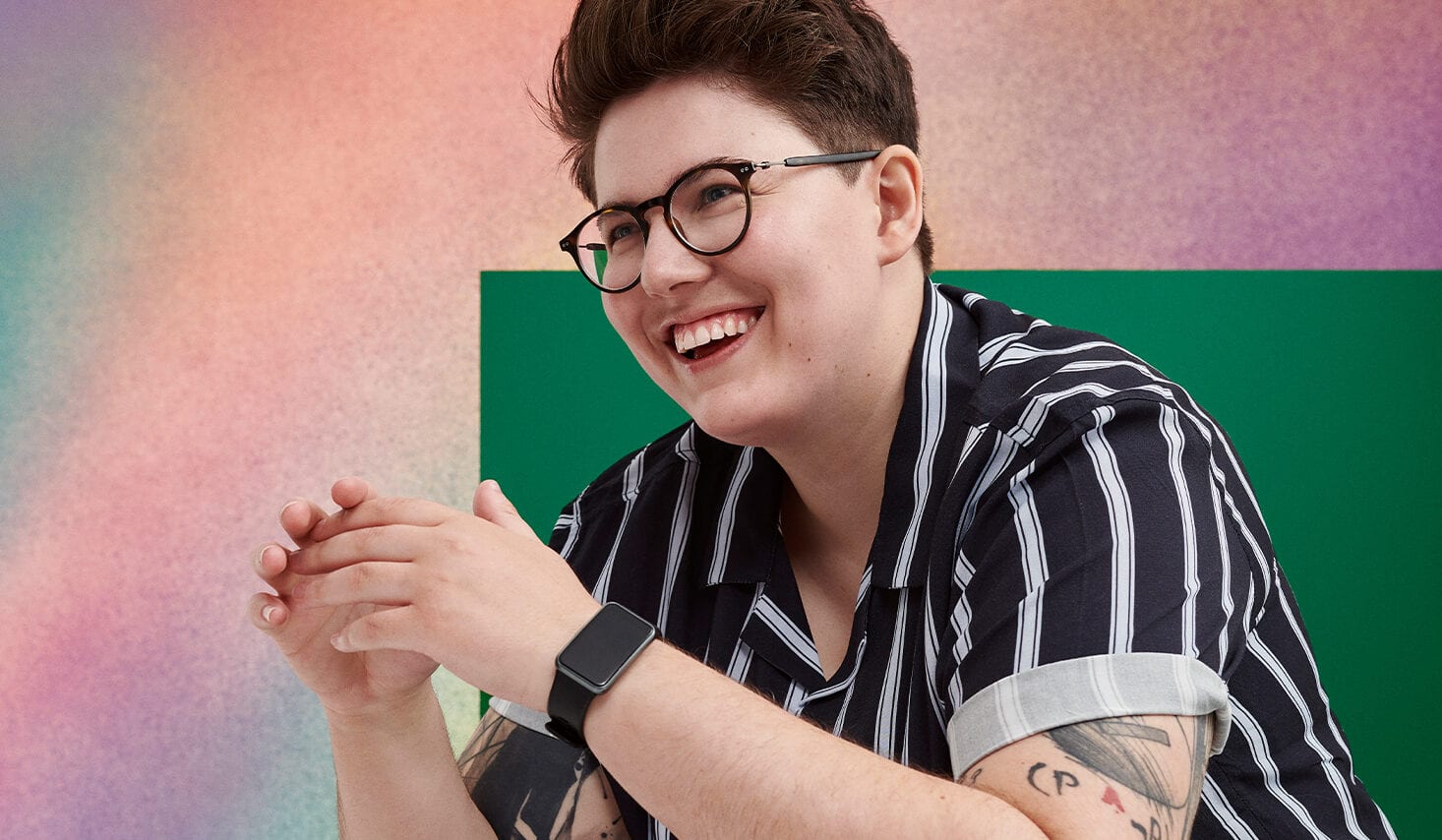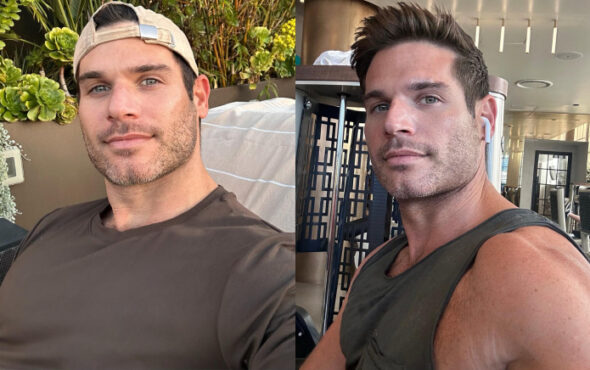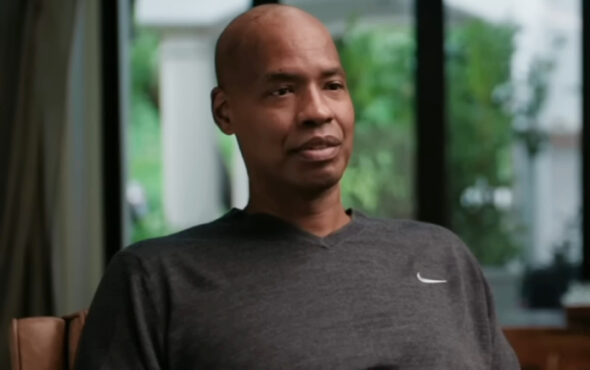
“I’d like us to get to a place where we all treat each other as ‘people who like people’ by default and then take the time to learn more from there,” says Em, one of Lloyds Bank’s 2021 LGBTQ+ Role Models.
It’s a smart mantra for inclusivity that sums up their ambition for how the world should be; a world where LGBTQ+ people can see people like them, and products made for them as if it had always been that way.
Working in Responsible Transformation, Em is a learning and content designer who’s been using innovative approaches in tech to help Britain recover from the pandemic. Beyond this, they’re also inspiring colleagues to finesse both the language and design of products and services to be more inclusive for LGBTQ+ customers.
We caught up with Em to hear how important it’s been for them to have LGBTQ+ role models and allies at work, and how they believe in using the power of language to put LGBTQ+ people more at ease.
How has Lloyds Bank empowered you to be your authentic self at work? Why is it important to have visible LGBTQ+ role models?
The more I’ve talked openly with my colleagues about who I am and how I feel, the more they’ve encouraged me to do it. To me, that’s saying that they actually want to learn more, so I know I’m not burdening them by talking about my experience. Even when I first joined, no matter the team, there was always that openness. It’s always been clear to me that LGBTQ+ inclusivity here is not a marketing scheme, or something just said at an executive level.
In terms of LGBTQ+ role models, when I was growing up, I just didn’t have any. I knew around age 6 that I was on the LGBTQ+ spectrum, even if I didn’t have the words to describe it. Yet, the first time I met someone remotely like me was around age 15. In this long gap I could have really benefited from role models to validate my experiences or show me I was normal. Yes, many of my friends and family were really supportive and protective, but when you don’t have role models, you can start to believe that they are trying to protect you from who you are, rather than society’s perception of you. You really do start to fear that your identity isn’t compatible with the successes you want to achieve in future.
Do you remember the moment when you realised that LGBTQ+ people can be successful and themselves in the workplace?
It was more like a series of repeated affirmations. I came out as ‘gay’ soon after I joined, and even though I was scared of the impact, I received nothing but support. As time went on, I started to talk to a couple of colleagues about not wanting to differentiate myself as a ‘woman’ or ‘gay’ and asked them to just treat me as a ‘person who likes people’, or ‘non-binary.’ They encouraged me to talk openly to my team about it. I was terrified, but shouldn’t have been. They asked interesting questions, hugged me and gave their full support.
In your role, how have you helped foster a more inclusive approach for LGBTQ+ colleagues and customers?
Opening up to my colleagues was a catalyst for me talking about gender identity. So I set myself the promise to take every opportunity to talk openly about my experiences and the experiences of my friends on the LGBT+ spectrum. Particularly with Lloyds Bank designers who create things like our banking apps and online web pages. Even if it’s just by making the scary Mr/Mrs/Miss box more inclusive. Legally, a lot of my documentation still says ‘Miss’, ‘Emily’ or ‘female’, so I often feel I have to fill out forms and information as such. For example, I never know if I have to give my legal name or if I can use my preferred name ‘Em’. So embedding something as simple as ‘Tell us your preferred name when we’re chatting to you’ or adding a ‘preferred name’ box into services can make me and other people feel infinitely more comfortable.
What advice would you give to someone who feels scared to be open about who they are in the workplace?
Try to identify upfront the kind of organisation that you’re going to work for: is it one that will protect you and has visible role models? When applying, you can also put ‘indicators’ on your application such as ‘I volunteer at an LGBTQ+ society’. This will give employers the chance to either show their support or show themselves as non-inclusive. It may make you worry, but you don’t want to work for an employer who doesn’t value you as your whole self. So my advice would be – be yourself, always, but try to protect yourself at the same time by researching your employer upfront.
What are your hopes for the future in terms of inclusivity for the LGBTQ+ community?
I’d like us to all get to a place where inclusion applies to everyone: a place where we’re all just treated as ‘people who like people’ – no matter who you are or how you identify or express yourself. That’s really important for legislation and healthcare too. We also need LGBTQ+ education and role models to become commonplace, so no young person ever has to grow up believing they have to choose between success and happiness.


